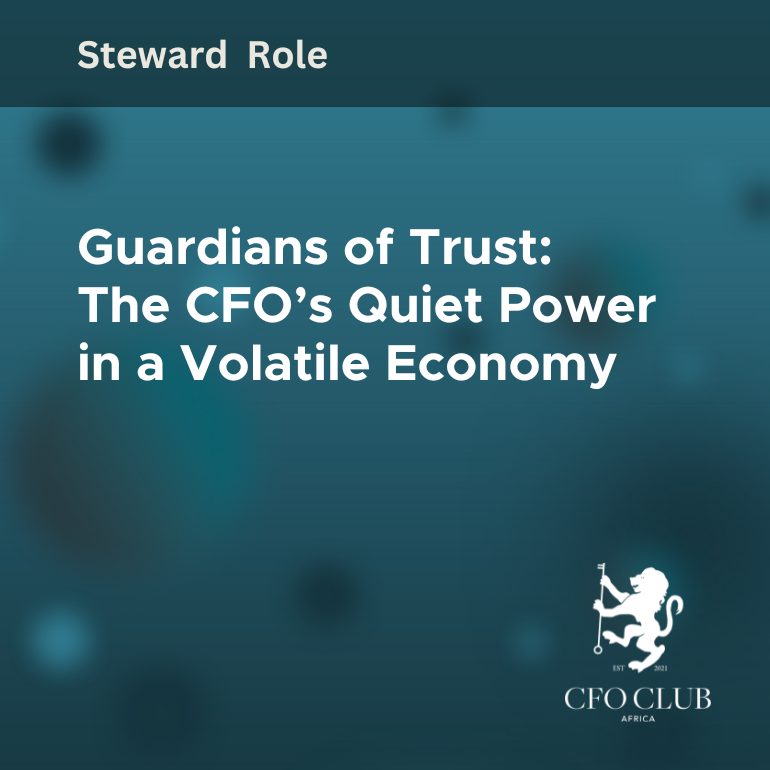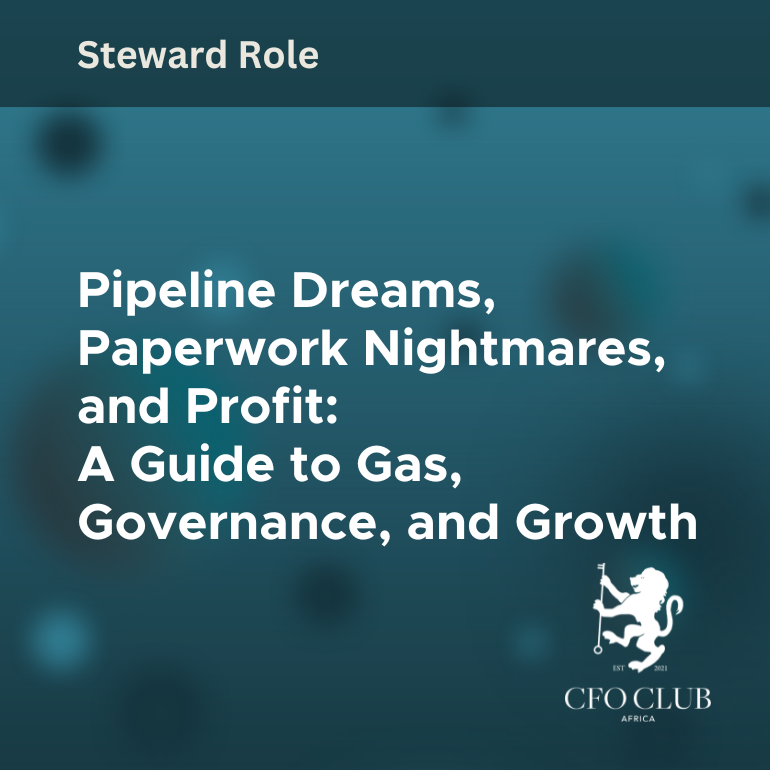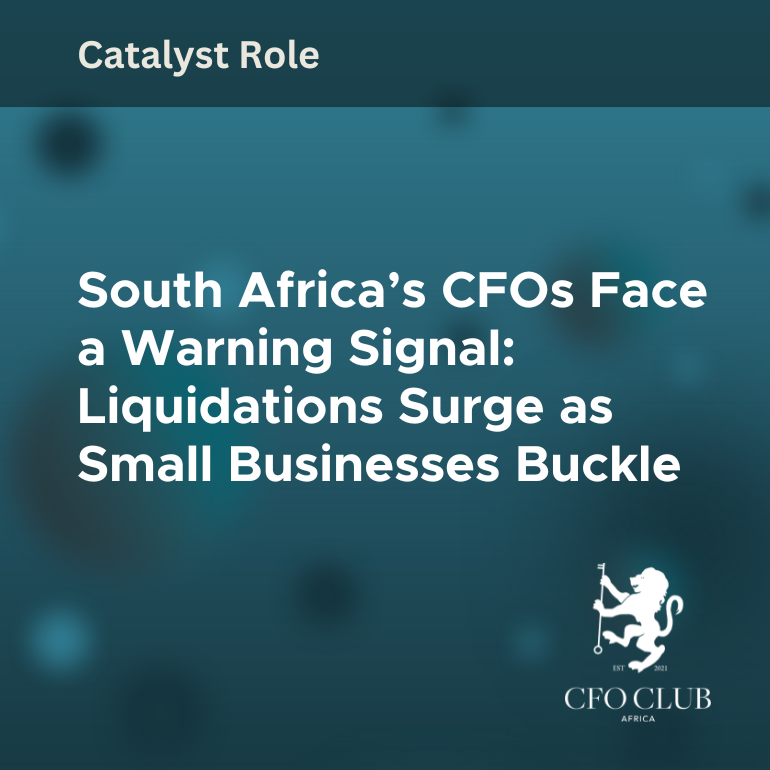Guardians of Trust: The CFO’s Quiet Power in a Volatile Economy
When the economy shakes, everyone looks to the CEO for direction. Yet behind every steady decision and every confident investor update, there is another leader who keeps the organisation grounded. The modern CFO is that anchor. They are the quiet force holding financial integrity, accountability, and trust together while others look ahead to growth.
Keeping the Foundation Steady
South African businesses operate in an environment that constantly tests resilience. Rising interest rates, stricter tax enforcement, grey-listing requirements, and ongoing economic uncertainty all demand financial leadership that is calm and credible.
In this environment, the CFO’s true value is not found in rapid expansion or complex financial models, but in the ability to maintain trust. Reliable reporting, consistent governance, and honest communication form the foundation of any sustainable business. When the numbers are right and the systems hold firm, everything else can grow from there.
Ethics as a Leadership Advantage
Ethics is not a side topic. It is central to performance. When an organisation’s financial conduct falters, the damage extends far beyond the balance sheet. It affects reputation, client confidence, and the morale of the people inside it.
Recent research from Deloitte Africa found that more than two-thirds of South African boards now list financial governance as a top risk. That means finance leaders have an opportunity to set a new tone: one where ethics are built into daily decisions, not added later as compliance. When honesty is habitual, trust follows naturally.
Integrity, in this sense, becomes more than a personal quality. It becomes a competitive advantage.
Building a Culture of Accountability
South African regulators are strengthening expectations for transparency and responsible reporting. The CIPC’s new enforcement initiatives and the FSCA’s renewed focus on fair conduct are reminders that compliance can no longer be reactive.
CFOs play a crucial role in turning these requirements into a living culture. This means checking anomalies before they become findings. It means turning audit readiness into an everyday state of discipline. And it means ensuring that the finance function models the standards it expects from the rest of the organisation.
A company that operates with this level of integrity doesn’t just avoid penalties. It earns confidence from lenders, investors, and employees alike.
Protecting Continuity in Uncertain Times
Rolling blackouts, currency swings, and market shifts have made financial continuity one of the biggest tests of leadership. The CFO is the guardian of stability, ensuring that short-term pressures do not compromise long-term strength.
Cash flow forecasting, working capital control, and clear risk planning are not simply financial tools. They are acts of protection. They give the organisation breathing space to adapt when shocks come. In difficult months, this quiet preparation often means the difference between surviving and stumbling.
Culture Speaks Through Numbers
The numbers a company reports reveal much about its culture. CFOs can shape that story. Every expense approval, every incentive structure, and every budget allocation reflects what the business truly values.
When finance teams link metrics to responsible priorities — fair pay, skills development, or social contribution — they do more than close the books. They define success in a way that includes both people and profit.
Through this lens, finance becomes a moral language. It translates an organisation’s values into daily practice.
Trust: The Measure That Matters Most
Trust cannot be measured in a spreadsheet, but it determines whether clients stay, whether staff feel secure, and whether partners believe in the organisation’s future.
In many South African companies, the CFO is the final voice before decisions reach the board. That position carries both power and responsibility. Protecting the credibility of the numbers protects the credibility of the entire enterprise.
Every CFO knows how hard it is to rebuild trust once it is lost. The finance leader who protects it consistently becomes the quiet hero of every crisis.
A Legacy of Integrity
Technology, strategy, and transformation all matter. But they rest on one thing: integrity. The future of finance belongs to leaders who combine innovation with accountability, ambition with restraint, and speed with reflection.
In a world chasing growth, the CFO who holds the line on principle ensures that growth lasts. The work may be quiet, sometimes invisible, but its impact echoes through every successful audit, every boardroom decision, and every moment when stakeholders choose to believe.
The CFO’s greatest contribution is not the profit they record, but the trust they preserve. That is what builds legacies that last.





